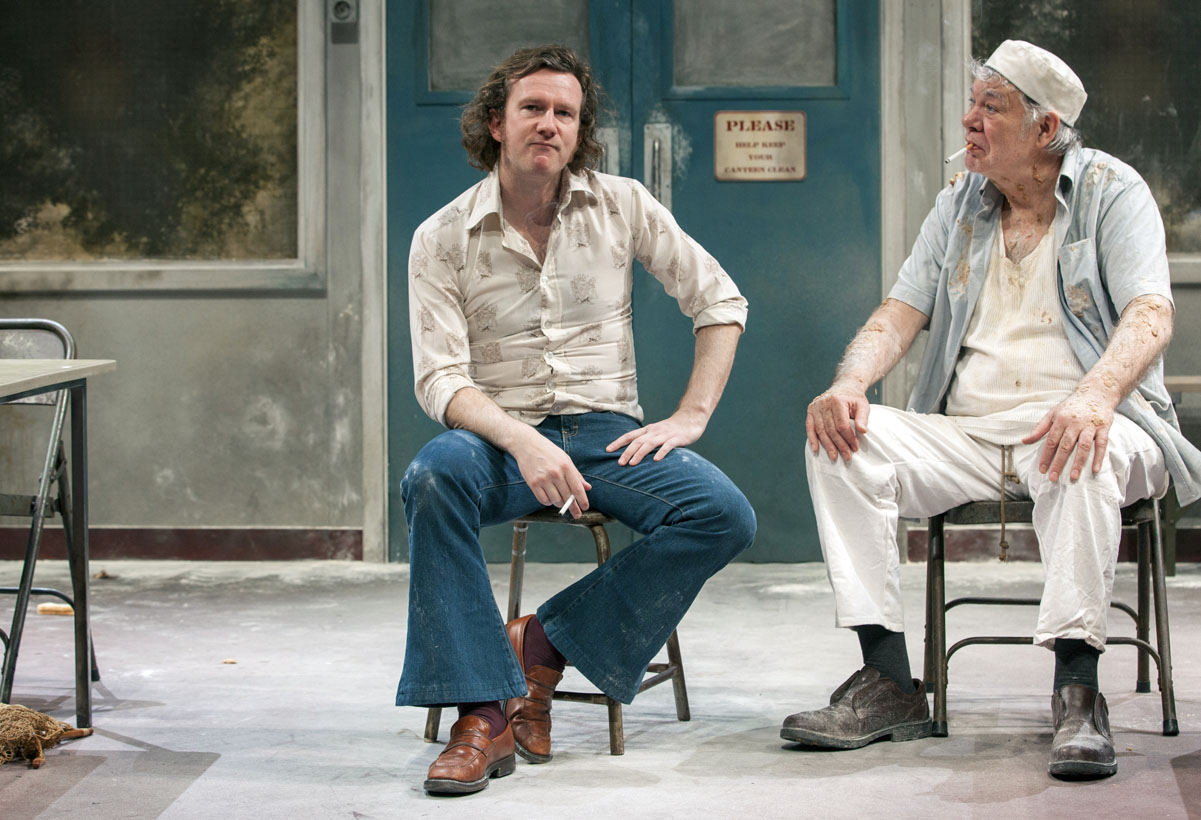
As the noise of the bread factory thrums in the background, the flour settles in the break room. This is the setting for the revival of Richard Bean’s first play, Toast, written over ten years before his One Man, Two Guvnors gained international acclaim.
In the break room a group of men come and go as they work their shifts at the factory. They take their breaks, winding each other up, borrowing cigarettes, and magically revealing their inner workings whilst not really doing much at all. The plot centres around a big order for 3,000 loaves and a tin that gets stuck in an oven, but it’s not really about that. A bread factory lesson for you: if six people are working a 12-hour shift, a seventh worker must be available to cover them during their tea breaks and lunch breaks (and cigarette breaks). This worker is the spare wank. Ahem. In Toast this seventh worker is an outsider, a mature student who’s just temping at the factory, and who at the end of the first half seems to be poised to shake things up. But it’s not really about that either. The play doesn’t really feel like it’s about anything, which is perhaps, unexpectedly, where its power lies.
It focuses on a group of people, just getting on with their lives. It seems a little unfair really that Matthew Kelly is plastered all over the marketing material. It’s not that he isn’t excellent – he is fabulous as Nellie, the monosyllabic mixer who’s been at the factory for 45 years, and doesn’t really know who he is without his job. It’s that the rest of the cast are just as important as he is. This isn’t a play about one person. It’s an ensemble piece, where there isn’t particularly a take home message or moral, it’s just about getting to know a group of seven men.
In the programme, Richard Bean says “I’m interested in entertaining an audience rather than changing the world or becoming an auteur”, and he certainly does entertain the audience. Full of sweary banter and genuinely funny jokes, you come out of it feeling like you’ve heard some fun stories down the pub. I didn’t feel I had learned a moral message on leaving the play, but I don’t think Bean wanted to do that. He just wanted to display the much more complicated story of how men’s minds work, and how people find meaning in their life, however unappealing it may seem from the outside. ★★★★☆ Deborah Sims Oxford Playhouse 17th February 2016
Photo by Oliver King

